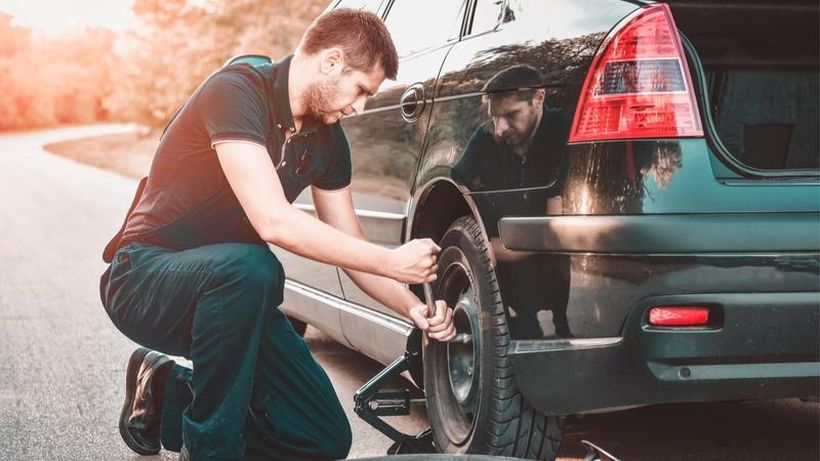As the temperatures rise in Texas, it’s crucial to ensure your tires are in optimal condition for safe and smooth driving. This blog provides you with insights and practical advice to help you maintain your tires during the summer months. Follow these tips to maximize tire longevity, enhance safety, and enjoy worry-free journeys throughout the summer season.
Tires Can Burst in the Summer – Here’s Why
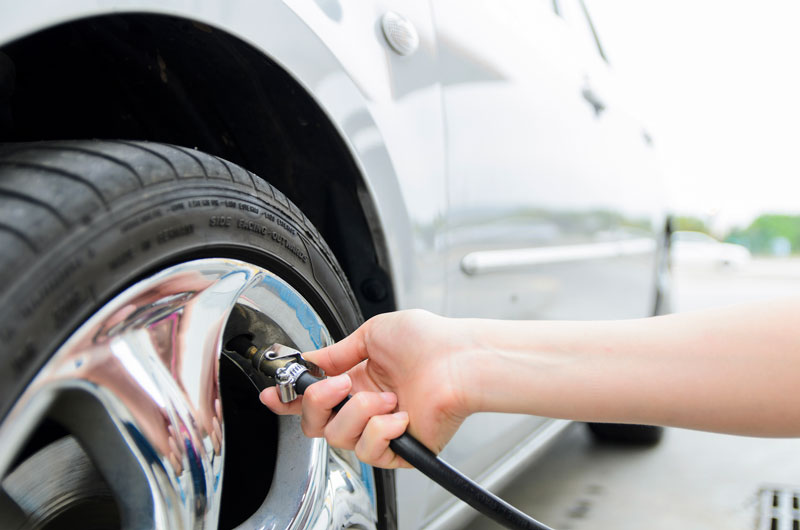
The intense summer heat takes a toll on tires, wearing them excessively and earlier than they should, thus making them more vulnerable to bursting. One of the common effects that high temperature has on tires is changes in tire pressure. Excessive flexing and deformation of the sidewall lead to a tremendous amount of heat built up inside the tire.
Another reason is dry rot. Due to excessively high temperatures, the oil in the tire’s rubber starts to evaporate, resulting in sidewall cracking, which is dry rot. This makes the tire dry, thereby becoming susceptible to cracking and, at times, dangerous tire bursts.
Wheel Alignment and Wheel Balance
It’s important to have your wheels balanced and aligned by a professional, especially before going on a long drive. This helps ensure they are in the right position and working together smoothly. Additionally, getting them rotated regularly will help them wear evenly, which reduces the risk of a tire suddenly bursting. By taking these steps, you can make your drives safer and more comfortable.
Perform Regular Tire Tread Checks
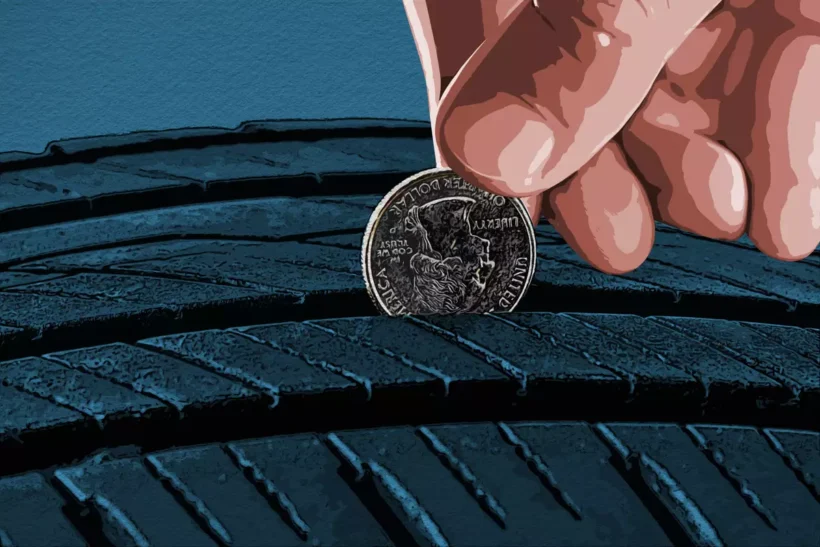
In the summer months, it becomes particularly crucial to inspect the depth of your tire treads to ensure they provide sufficient grip when driving in summer rain showers. But what exactly are tire treads? Tire treads refer to the raised pattern on the rubber surface of a tire, and their primary function is to increase traction on wet road surfaces.
So, what’s their purpose? The grooves and small slits within the tread, known as sipes, are designed to disperse water from beneath the tire, allowing you to drive safely while maintaining control of your vehicle, even in rainy conditions.
It’s important to know how to tell that your tires are worn out. You’ll know it’s time to replace your tires if the tread depth is less than 1/16 of an inch on any of them. Alternatively, you can utilize a simple “penny test” to assess whether your tires require replacement or not. Here’s how:
- Grab a penny and insert it into the grooves of your tire, making sure that Lincoln’s head is facing downward.
- If some of his head remains hidden, your tires are still in good condition.
- If you can observe his entire head, it means your tire tread has worn down to 2/32 inches or less, indicating that it’s time to consider replacing your tires.
Regular Cleaning
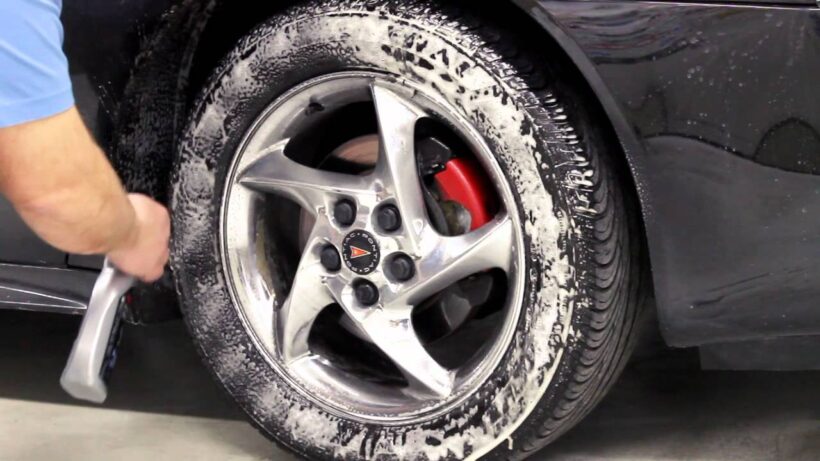
Make sure to clean your tires often and apply a wax-based protector on them. This will help them stay strong during the hot summer weather. Cleaning and waxing will stop them from getting too dry and wearing out faster than they should. You can easily do this at home using a spray and brush made specifically for cleaning tires.
Tire dressing is a synthetic rubber product designed to enhance the appearance of your tires, providing a shiny, like-new finish. However, it’s essential to be discerning when selecting a tire dressing, as not all options are created equally. Some tire dressings can be detrimental to your vehicle’s finish due to their inclusion of petroleum distillates, which have the potential to strip wax from your paint and dehydrate rubber seals.
To avoid such issues, it’s crucial to opt for a tire dressing that does not contain petroleum distillates or silicone when you purchase a tire cleaner, as the latter can also lead to similar problems. Once you’ve identified the suitable product, begin by cleaning your tires thoroughly with dish soap and water. Next, apply two coats of the chosen tire dressing, carefully following the instructions provided on the product’s packaging. As an additional precaution, always conduct a patch test on an area to ensure it won’t harm your vehicle’s paint or protective clear coat.
Maintain the Right Tire Pressure
One of the most important things to remember for safe driving, especially during the summer, is to maintain the right tire pressure. This simple guideline is often overlooked, but it’s crucial. To know the correct tire pressure, you should check the recommended level set by the vehicle manufacturer. These tips will help you ensure your tires are properly inflated, leading to better driving conditions and safer journeys.
Ensure Good Tire Valve Condition
Tire valves are in the wheel rim and consist of a rubber-like material with a central brass core situated at the tip of the valve stem. Over time, the rubber portion can deteriorate or develop cracks, enabling air to leak from the tire. Detecting such issues can be challenging, resulting in gradual tire underinflation. Valves play a crucial role by facilitating the process of inflating your tires with air and subsequently retaining the air within them.
Get New Tires
Before summer arrives, it’s essential to replace any worn-out or old tires. This means getting new tires to replace the ones that are no longer in good condition. It’s important to do this because worn-out or aged tires may not provide proper grip on the road and can be more prone to punctures or blowouts. Replace them before summer to ensure that your vehicle is equipped with reliable tires that will keep you safe on the road during the warmer months.
Visit a Tire Center in Central Texas for Wheel Balancing and More
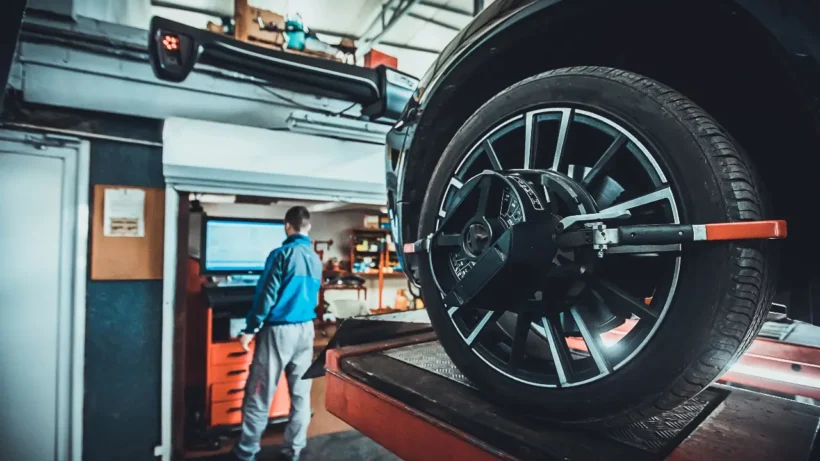
To prevent issues with your tires, it’s important to take care of your tires during the summer months. Visit a tire center in Central Texas for expert advice and quality services.

